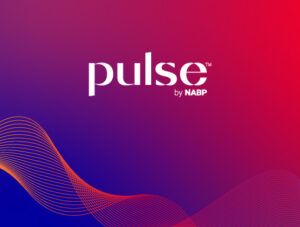The National Association of Boards of Pharmacy® (NABP®) and its member state boards of pharmacy continue the tradition of excellence in test development with plans for enhancements across all of the NABP examination and assessment programs. The enhancements are in response to the evolving practice of pharmacy and direction from the state boards of pharmacy, who legally determine pharmacists’ competence to practice and the content of the Association’s licensure examinations.
The North American Pharmacist Licensure Examination® (NAPLEX®) program has recently undergone evaluations of its content and test specifications, test design and assembly, administration processes, scoring, and passing standard. The new NAPLEX competency statements and revised passing standard will be implemented in November 2015. In addition, the NAPLEX will make a progressive transition to a new administration model in 2016. At that time, the NAPLEX will increase in length from 185 items to 250 items. The recommendation to increase the depth and breadth of the NAPLEX came as a result of the national NABP Pharmacy Practice Analysis Survey conducted in 2014. Over 4,700 respondents to the Survey (pharmacy regulators, practitioners, and academicians) recognized the value in testing entry-level candidates on a variety of patient-centered, clinically based topics necessary for safe and effective practice. NABP is also reviewing a proposal to move the NAPLEX scoring results to a pass/fail platform. The benefits and concerns with such a transition must be evaluated before such an action can be proposed to the state boards of pharmacy.
In support of the need for a national evaluation of foundational knowledge in the PharmD curriculum, and in compliance with the Accreditation Council for Pharmacy Education (ACPE)Accreditation Standards and Key Elements for the Professional Program in Pharmacy Leading to the Doctor of Pharmacy Degree (Standards 2016) requirement, NABP will be providing the Pharmacy Curriculum Outcomes Assessment® (PCOA®) to all students nearing completion of the didactic curriculum (ie, third year or equivalent). The PCOA is the only nationally administered examination that covers the four foundational sciences in pharmacy curriculum as outlined by the ACPE Standards 2016 and the 2013 Center for the Advancement of Pharmacy Education outcomes. The PCOA has been administered to over 32,000 students enrolled in ACPE-accredited PharmD programs and is used by the schools and colleges of pharmacy as evidence of student progress and growth throughout the PharmD curriculum.
Both the PCOA and the NAPLEX provide descriptive data for the schools and colleges to evaluate in relation to student performance at the program as well as the national level. In addition, aggregate outcomes from these examinations present comparisons of student performance among the various PharmD curriculums in the United States.
In collaboration with its member boards, NABP is moving forward with a communication skills assessment. The 2014 NABP Pharmacy Practice Analysis Survey provided strong evidence that pharmacist communication skills are of paramount importance for safe and effective practice and that entry-level pharmacists deficient in communication skills could place the public health at risk. In response, NABP will develop an integrated pharmacist communication skills assessment that could be used by its member boards as an additional component for licensure beginning in 2018.
Rounding out the ongoing exam development efforts, NABP conducted a review of the Multistate Pharmacy Jurisprudence Examination® (MPJE®) content domains followed by a survey of pharmacist and pharmacy regulators. The MPJE domain survey addressed the key areas required for practitioner compliance with state and federal laws and regulations. Recognizing the importance of quality control measures, sterile and nonsterile compounding regulations, and compliance with the standards of pharmacy practice, NABP has revised the MPJE content domains to reflect contemporary practice.
The current and future NABP examination and assessment programs provide the state boards of pharmacy and academic institutions with critical data to affirm preparedness for pharmacist practice and make evidenced-based evaluations and decisions for licensure. NABP is committed to high standards of excellence for test design, development, and defensibility of its programs and looks forward to collaborating with other organizations invested in the excellence of pharmacy practice.
NABP is the independent, international, and impartial Association that assists its state member boards and jurisdictions for the purpose of protecting the public health.
Media Contact
Larissa Doucette
847-391-4405
help@nabp.pharmacy



